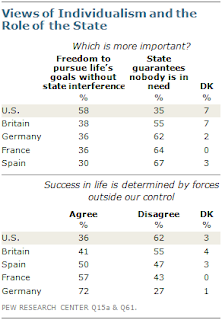Rich America, Poor America - Niall Ferguson
There are some tidbits in this column worth exploring when I have a bit more time. Rich America, Poor America - The Daily Beast Niall Ferguson uses the publication of Charles Murray's Coming Apart as a starting point for an analysis of the left-right divide on the causes and cures for income disparity in the United States. Ferguson begins with a clear summary of the problem. There is no question families are drifting further apart at the extremes of the income scale. This is not a 1 percent versus the 99 percent issue, it is most extreme at the top 0.01% and the bottom 10% according to most economists. The bottom is falling, skewing averages, and the top is… well, read for yourself: Adjusted for inflation, the income of the average American male has essentially flatlined since the 1970s, according to figures from the Census Bureau. The income of the bottom quarter of U.S. families has actually fallen. It’s been a different story for the rich. According to rece...
